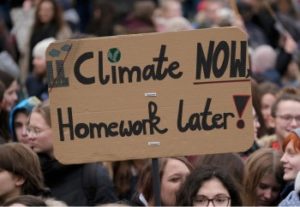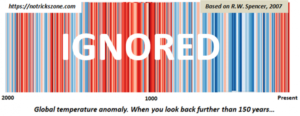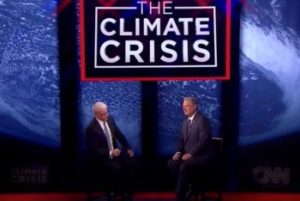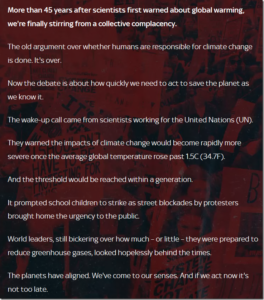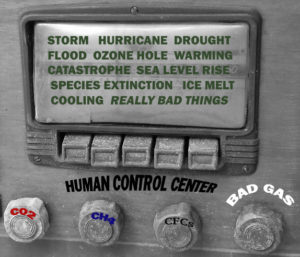by R. Darwall, Mar 7, 2022 in TheSpectator
“No climate crisis” is, of course, not the spin the Intergovernmental Panel on Climate Change (IPCC) is putting on its new 3,676-page report released last month. “The choices we make in the next decade will determine our future,” the IPCC says. “Any further delay in concerted global action will miss a brief and rapidly closing window to secure a liveable future.”
It could hardly be plainer. The report is political advocacy barely masquerading as science.
The IPCC Working Group II report is not meant to be about policy; that’s the job of Working Group III, which has yet to produce its contribution to the sixth assessment report. “The focus of our new report is on solutions,” the IPCC says of the Working Group II report. “It highlights the importance of fundamental changes in society.” The solution to climate change, the IPCC claims, is renewable energy, circular economies, healthy diets, universal health coverage and social protection. The only surprise is that the IPCC didn’t include abolishing the Second Amendment in its climate catechism.
“Scientific evidence shows that addressing the risks and impacts of climate change successfully involves a more a diverse set of actors than previously thought” and involvespartnerships with “traditionally marginalized groups, including women, youth, Indigenous Peoples, local communities and ethnic minorities (high confidence).” How on earth did the IPCC exclude the LBGTQ+ community? “Different interests, values and worldviews can be reconciled if everyone works together,” the IPCC says. This isn’t science. It’s climate kumbaya.
Small islands were the poster child of net zero as they claimed they risked sinking beneath the waves thanks to rising sea levels. They successfully lobbied for the adoption of the target in the Paris climate agreement to limit the increase in global temperature to 1.5 degrees Celsius above pre-industrial levels. The IPCC therefore includes them in a list of global hotspots of high human vulnerability, asserting that their vulnerability will increase in the context of sea level rise. Yet only four years ago, the IPCC in its 1.5 degree Celsius special report stated that “observations, models and other evidence” indicate that unconstrained Pacific atolls have kept pace with sea level rises and that there had been “little reduction in size or net gain in land.”
In a blog post, Roger Pielke Jr. of the department of environmental studies at the University of Colorado Boulder notes that the IPCC lifts projections of future climate damages from studies that eliminate the choice of adapting to climate change, a practice Pielke calls “misleading at best.” Yet buried in the report is a study showing that adequate flood protection, i.e. adaptation, could avoid 95 percent of projected flood damages.
…



